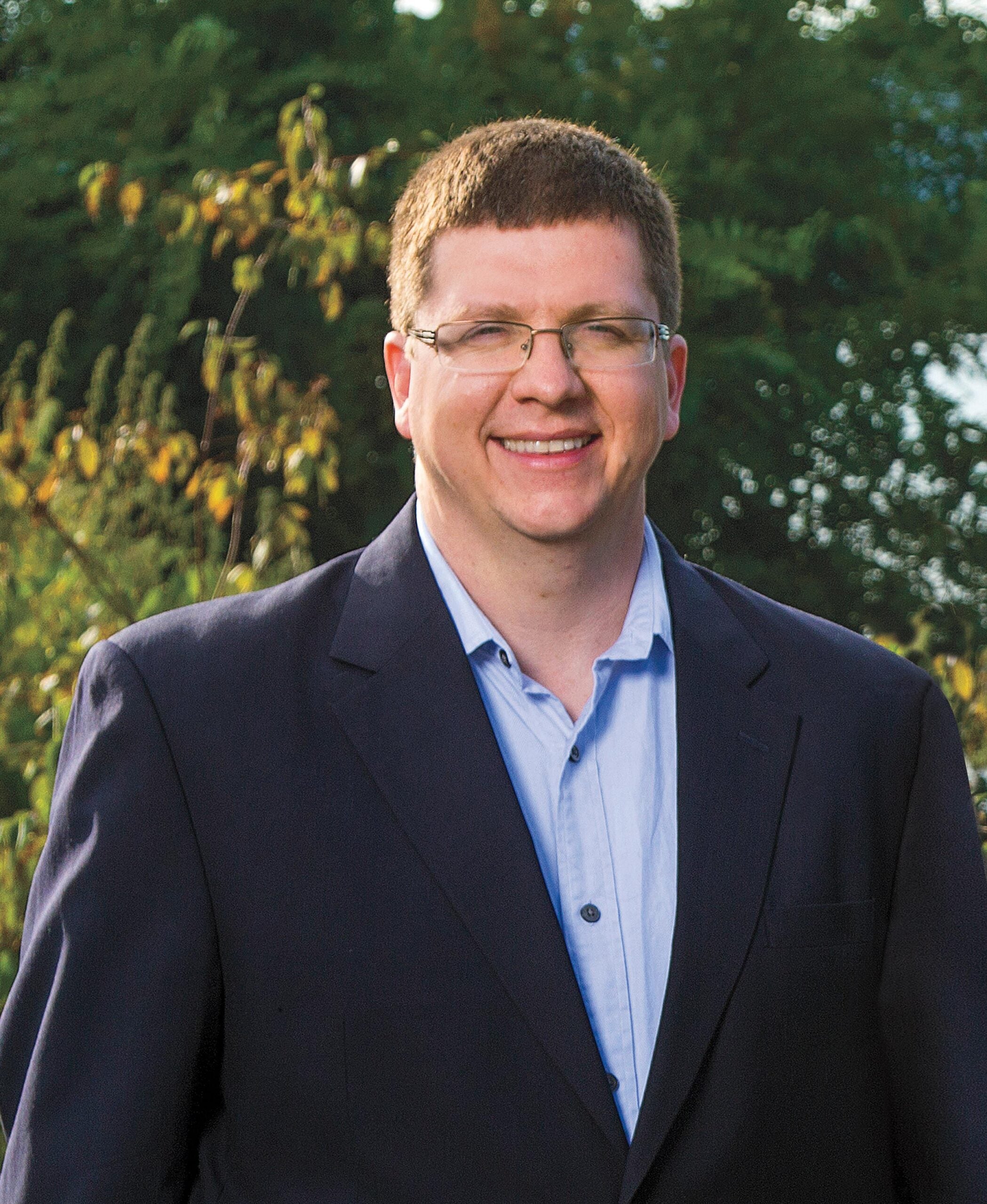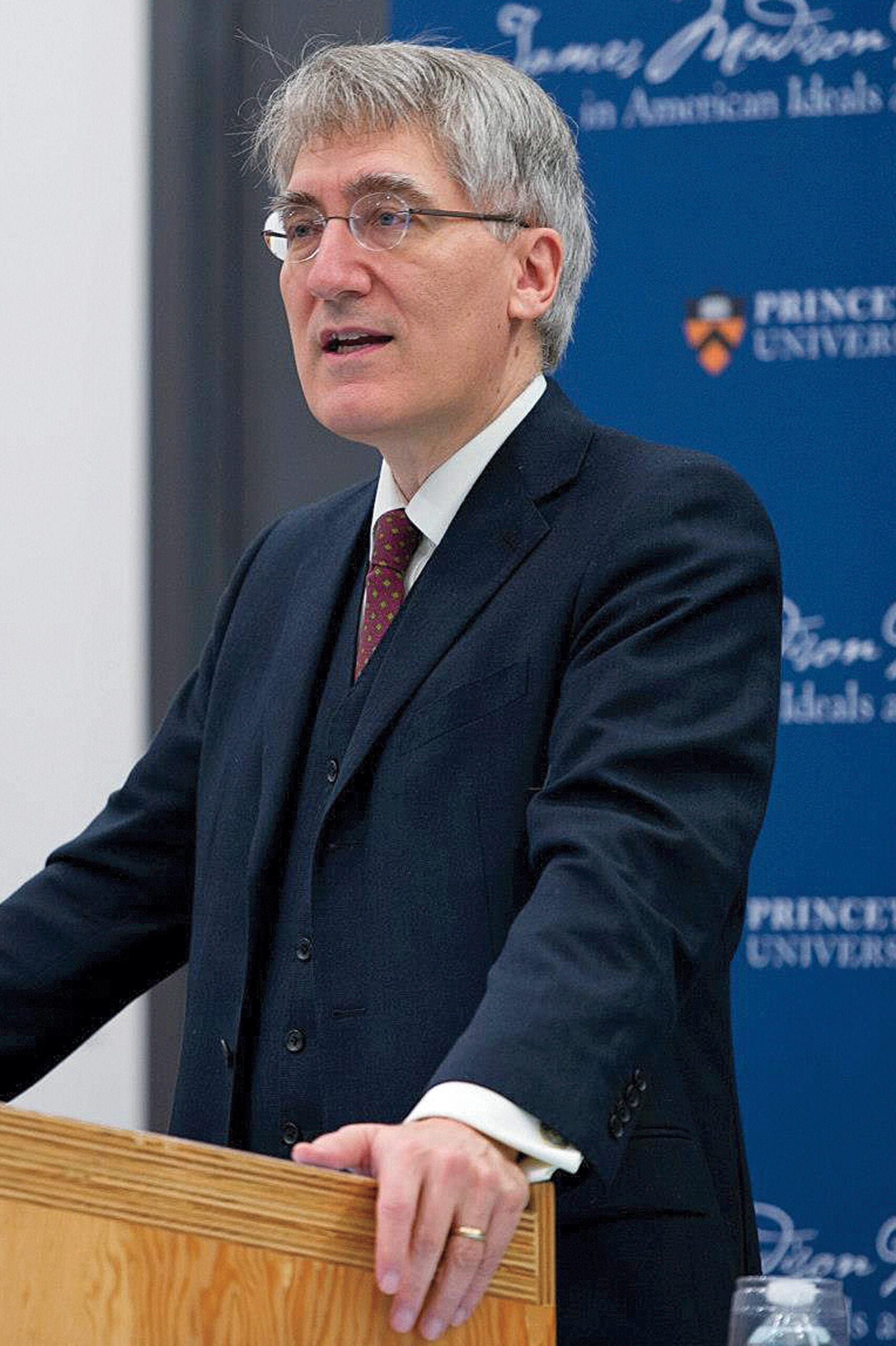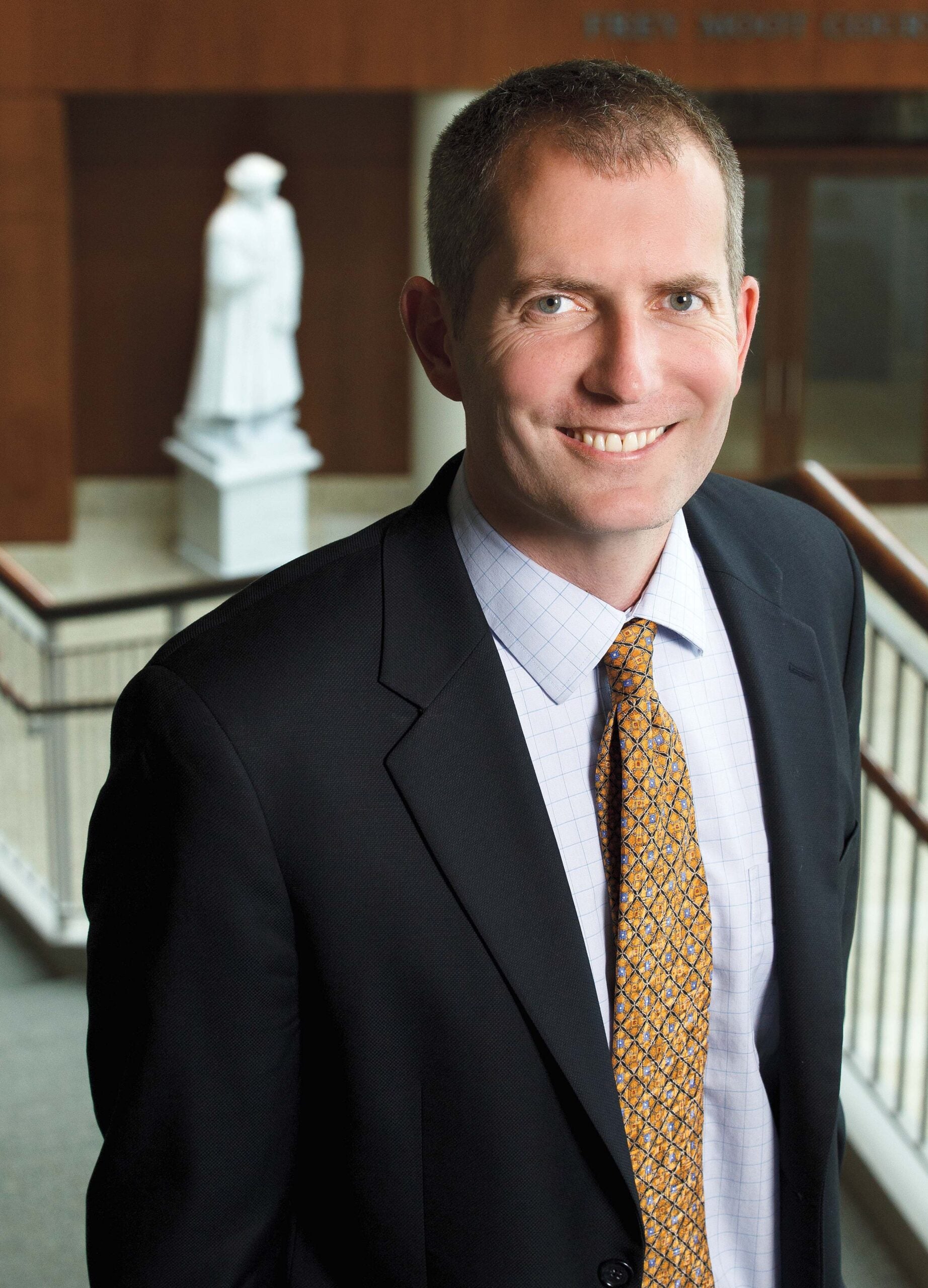

One year after a major win in Burwell v. Hobby Lobby, advocates for religious accommodation fear Obergefell could herald a narrowing of space for those who oppose same-sex marriage to express their views and could lead to a trampling of their beliefs.
Eric Rassbach ’99 of the Becket Fund for Religious Liberty, which filed an amicus brief in Obergefell urging the Court to leave room in its decision for religious rights, was heartened by at least one aspect of Justice Anthony Kennedy’s majority opinion. Kennedy ’61 signaled that the Court seemed to understand that, unlike the racists who defended the anti-miscegenation statutes overturned in Loving v. Virginia, opponents of same-sex marriage base their opposition on “decent and honorable religious or philosophical premises.”
Strong opponents of same-sex marriage, such as Robert P. George ’81, a Princeton University professor and recent visiting professor at HLS, see Obergefell as another in a line of cases, including Roe v. Wade, in which the Court overstepped its bounds and decided an issue better left to voters. Although he hopes that the political tide will change and the decision will be reversed or overturned by constitutional amendment, he says that the bigger battles in the coming years are likely to involve the tension between LGBT and religious rights.
For example, George argues, those who seek to restrict religious liberty exemptions only to “religious activities,” and not to secular actions performed in religious institutions, misunderstand the nature of religious institutions. “Religious people cannot draw that distinction,” he says. “They see religion pertaining to the whole of life, especially when it’s the life of a religious institution.” Among other concerns, George cited the possibility that religious organizations might lose tax-exempt status if they fail to accommodate same-sex marriage.
Although litigation and legislation involving religious rights are quickly moving through courts and legislatures, Robert Vischer ’96, dean of the University of St. Thomas School of Law and a frequent author on religious rights issues, agreed that many of the upcoming battles will likely be cultural as much as legal. He believes opponents of same-sex marriage have overrelied on traditional characterizations of marriage that have long been eroded by the rise of no-fault divorce and the “cultural cheapening of marriage.” In the aftermath of Obergefell, Vischer expects to see social conservatives focus on bolstering the traditional institution of marriage—a goal separate from eradicating same-sex marriage, which he thinks is politically unlikely. For example, he said, states may see a potential uptick in laws such as those in Arkansas, Arizona and Louisiana that allow couples to enter into “covenant marriages,” which limit the grounds available for divorce.
More importantly, post-Obergefell, Vischer looks forward to more nuanced conversations regarding the scope and limits of religious liberties. Until now, he said, arguments have cut clean lines, with those who favor same-sex marriage arguing, almost automatically, that religious liberty exemptions ought to be limited, and those who oppose same-sex marriage arguing the opposite. “These are hard issues, and as a country, if we’re going to continue to care about religious liberty, we have to take the question seriously and avoid these simplistic, black-and-white responses,” Vischer said.
